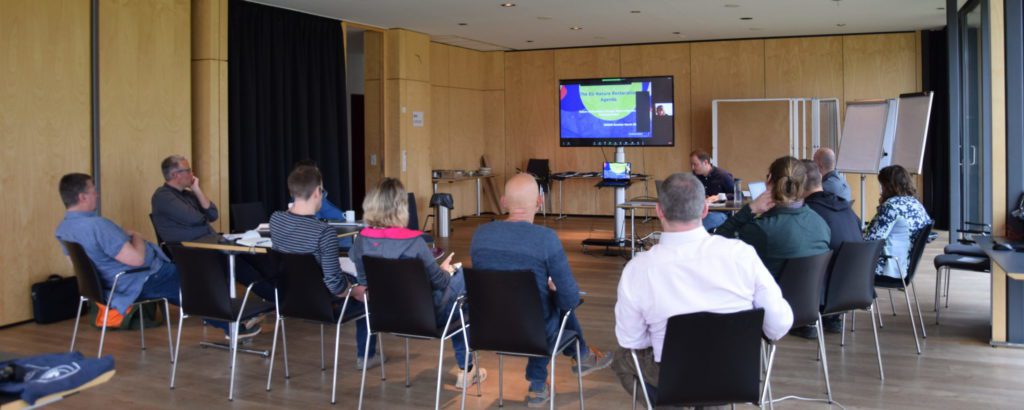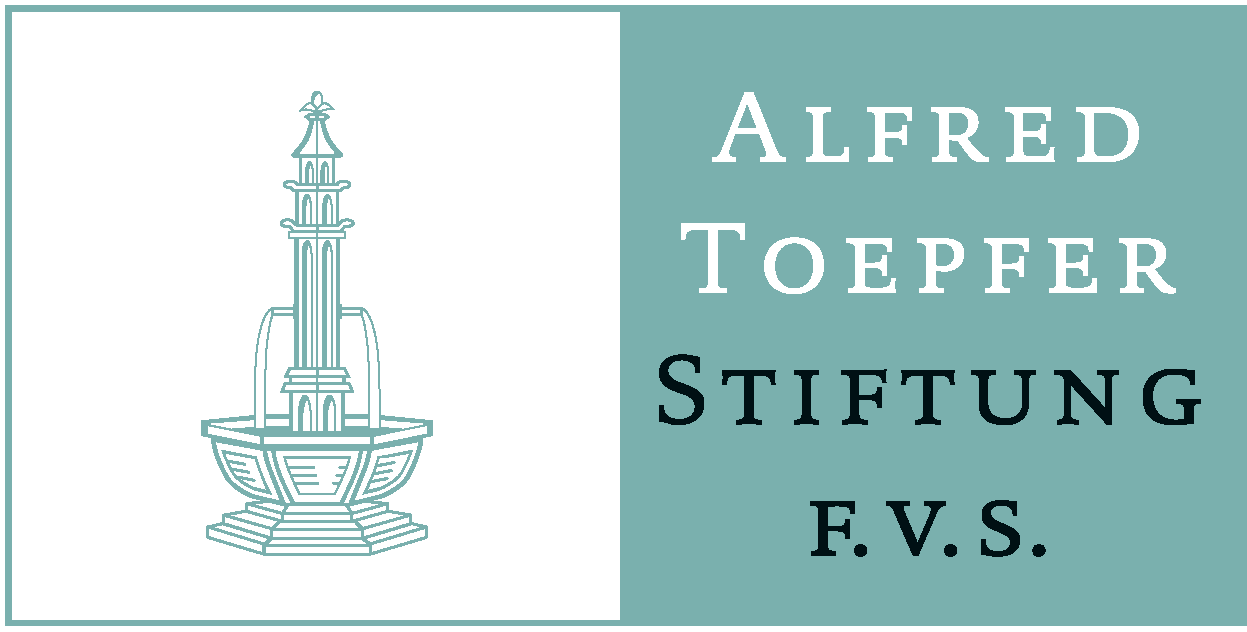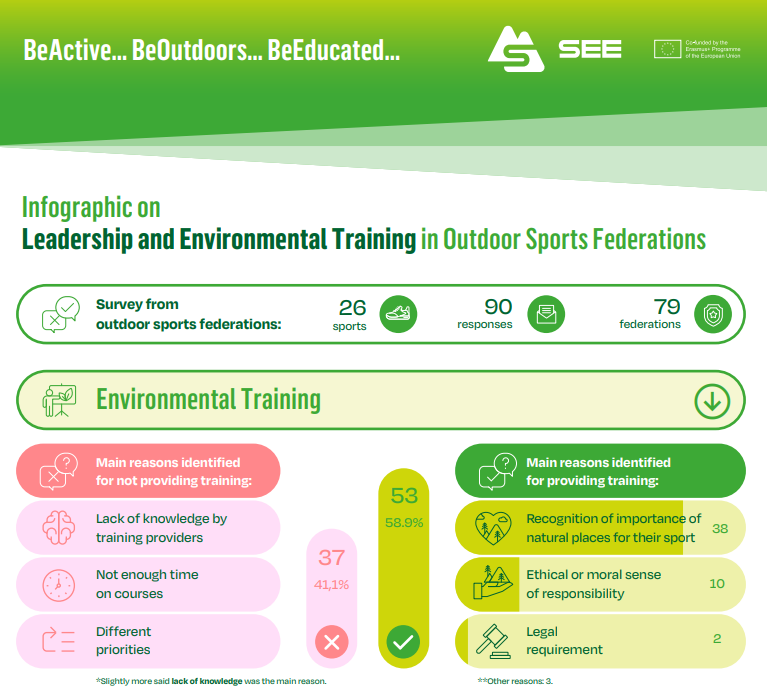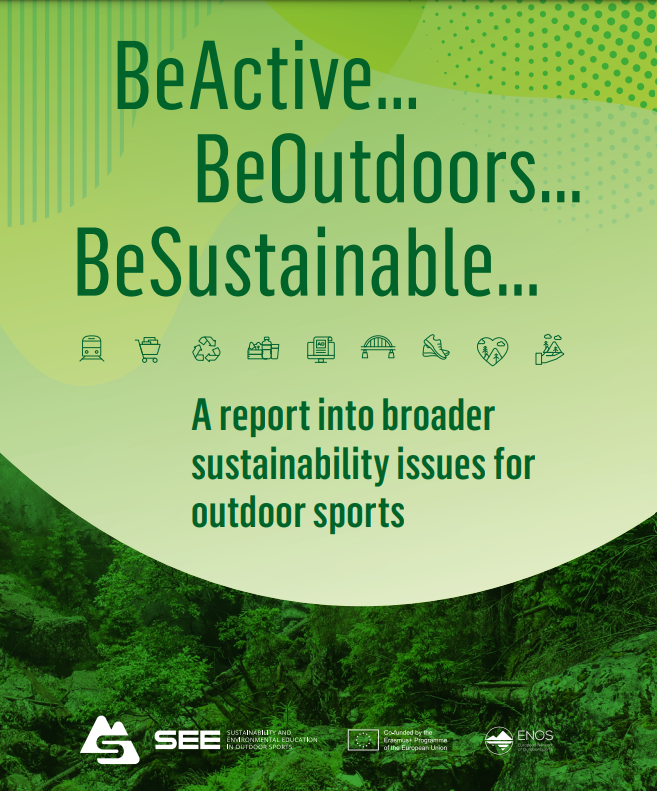LIFE ENABLE Experts Meeting: developing the forest and marine courses
From 20 to 23 June in Schneverdingen, Germany, LIFE ENABLE assembled 17 marine and forest experts and partners’ representatives from Germany, Austria, Finland, France, Italy, Spain, and Romania. Hosted by the project partner, Alfred Toepfer Akademie, this was the first face-to-face meeting involving the project’s in-house and external experts. The event was organised and facilitated by the EUROPARC Federation, with active support from MedPAN and ECO for two sessions during the programme.
Development of the courses
Over two full days, participants started the process of developing the marine and forest competence-based blended learning courses. They shared ideas and experiences to discuss a generic course model before beginning to describe the specific aims and objectives of the forest and marine courses and the modules for focus in the courses’ curricula.
The courses will continue to be developed in the coming months, ready to be delivered through the project’s new European Nature Academy in September 2023. As one of four tailor-made learning programmes for Natura 2000 and Protected Area managers, it is necessary to start planning the courses now so that curricula, content, and delivery materials can be produced.
By the end of the two days, everyone had greatly improved their own competencies … and could more than adequately say ‘Schneverdingen’! 🙂
Click HERE for more information about the LIFE ENABLE project, and check out the video summarising our productive meeting!
Nature Restoration in Europe – the Role of Protected Areas
All participants of the Siggen Seminar 2022
Once a year, the EUROPARC Federation, thanks to the generous support of the Alfred Toepfer Stiftung, offers members a free seminar. This year the ‘Siggen Seminar’ focussed on Nature Restoration.
Why restore nature?
As clearly stated by the EU in the Green Deal and the Biodiversity Strategy to 2030, protecting the nature we have will not be enough to reverse biodiversity loss. A complementary ambitious effort is now needed on nature restoration.
Restoring ecosystems all over Europe will help to increase resilience and connectivity of ecosystems, mitigate and adapt to climate change and prevent and reduce the impacts of natural disasters. For this, the European Commission is developing a new dedicated legislation, and the Bern Convention has recently approved targets for the restoration of natural ecosystems.
What’s the role of Protected Areas?
From the 28th till the 30th of March, 11 experts from all over Europe came together to discuss the role Protected Areas have to play in this process.
The policy perspective was provided by Angelika Rubin of the Nature Unit of the European Commission’s DG Environment. Sadly, the EC’s proposal for a legislative framework for Member States regarding Nature Restoration has been delayed. It will hopefully be published this month (June 2022). Nonetheless, from her intervention, it became clear that special efforts will need to be put into updating the monitoring system, as well as large-scale restoration efforts.
Protected Areas are essential for restoring what was lost and protecting what was restored.
You can find Angelika’s presentation, as well as all others at the bottom of the page.
The seminar

For two extensive days participants worked in teams to find answers to the following questions:
- What are the benefits of nature restoration for communities?
- How to implement nature restoration (from a governance perspective)?
- What are the key roles of Protected Areas (managers) in nature restoration?
- How can restoration projects be set up?
There was a balance of presentations held and prepared by the participants, as well as group work. Of course, the Seminar also facilitated networking and informal exchange.
The work of participants has resulted in a PowerPoint presentation that gives the answers to the above questions and also details what the opportunities are for Protected Areas concerning nature restoration. It should serve as a resource for Protected Area managers to underline the key role their Parks have to play in restoration efforts.
Know your worth
One thing that was underlined during the seminar, is that Protected Areas are not just “another interest group” when it comes to nature restoration, they are the experts! On that basis, the Siggen Seminar participants identified the following key roles for Protected Areas:
- Protected Area management teams are experienced and skilled ecosystems caretakers. They have the know-how to support, lead and inspire restoration projects. They have the ability and governance tools to plan, implement and monitor them to ensure success.
- Protected Areas offer high quality reservoirs of diverse species and functional habitats and ecosystems. They can serve as a model and a source to be connected to restored areas.
- Protected Areas are, or can be, living labs for nature restoration projects. Their features and structures are well suited to incubate pilot projects, demonstrate what is possible to achieve and share learnings and successes.
- Being a connection between people and nature in living land- & seascapes, Protected Areas can help communicate and collaborate with communities to foster ownership, pride, and involvement in nature restoration projects at a local level. They can help communities thrive, be rewarded and celebrate success!
- Bring in resources and funds for restoration to drive action. Protected Areas can be a bridge between local, regional, and global activities and networks and help secure both funding, and implementation.
You can find the PowerPoint presentation with all the outcomes here.
Presentations
All presentations held by our experts and participants can be found here:
Olivier de Sadeleer – Introduction to the Siggen Seminar
Angelika Rubin – Nature Restoration at EU Level
Ben Ross – Nature Restoration in Scotland
Elliott Lorimer – Restoration at Forest of Bowland
John van den Berg – River Restoration in the Netherlands
Santtu Kareksela – National scale prioritization and spatial planning in Finland
Nominations for the Alfred Toepfer Medal 2022 are still OPEN!
Kaja Lotman, recipient of the Alfred Toepfer Medal 2019, in Jurmala, Latvia - EUROPARC Conference 2019
Annually, EUROPARC honors those who have made a significant contribution to nature conservation in Europe through an experienced body of work and life experience. The Alfred Toepfer Medal, named after the founder of the EUROPARC Federation, Dr h.c. Alfred Toepfer (1894-1993) is awarded at the Annual EUROPARC Conference. Nominated by EUROPARC members this gives an opportunity to the work done to be praised and valued by peers.
Nominations for the Alfred Toepfer Medal
The winner is nominated by EUROPARC members and is selected by the Juri, comprised of EUROPARC Council members. Do you have someone in mind who you think deserves recognition for their dedication or achievements in the field of nature conservation and protected areas? Please consider nominating that person for the award.

If you need inspiration, discover here the holders of the Alfred Toepfer Medal.
Nominations can be done by any EUROPARC member before the 31st of July 2022.
Criteria for nomination
The Alfred Toepfer Medal is awarding people who made an exceptional contribution to nature conservation in Europe through an experienced body of work. In particular, the work related to Protected Areas and sustainable development are being considered.
Not eligible and exclusion criteria
Incomplete applications will not be considered.
Nominations will be excluded for:
- Active council members (elected & co-opted);
- Section representatives in a running mandate;
- Staff members.
Decision-making process
All eligible nominations will be evaluated by a jury, appointed by the council of EUROPARC Federation. The decision of the jury will be approved by the Council of EUROPARC Federation. The winner will then be awarded during the EUROPARC Conference in France, from the 5th till the 7th of October.
The process is easy: just fill out the online form here.
If you have any questions, please reach out to members.europarc @europarc.org
BeActive…BeOutdoors…BeEducated: SEE project Report into Leadership and Environmental Training in Outdoor Sports Federations
The SEE project aims to enhance the protection of natural landscapes through education on responsible outdoor behaviour across Europe. The project seeks to understand the impacts that outdoor sports can create in natural and Protected Areas, as well as globally, with respect to climate change. It also seeks to identify good practices from within the sector and then develop resources and methodologies to share knowledge and develop skills to support greater environmental responsibility by Outdoor Sports practitioners.
The SEE project reports
The first report: BeActive, BeOutdoors, BeResponsible highlighted the commonly perceived issues by Outdoor Sports in Protected Areas. This was achieved through the results from a survey conducted by the EUROPARC Federation and addressed to Protected Area managers.
The second report: BeActive…BeOutdoors…BeSustainable investigated the broader sustainability issues of Outdoor Sports in Protected Areas. This report identified 9 key areas Outdoor Sports practitioners can mitigate their impact on the natural environment:
- Mobility and Travel
- Equipment and consumption
- Waste and use of unsustainable materials
- Infrastructure
- Food and drink
- Social media and communication
- Events – problem or opportunity
- Environmental and nature connectedness
- Championing climate action and being nature advocates
The third and final report: BeActive…BeOutdoors…BeEducated was for partners to identify current good practices from within the Outdoor Sporting sector.

Infographic on Leadership and Environmental Training in Outdoor Sports Federations (click on the image to see the full infographic)
The partners of the project agreed on a list of 26 sports and activities that could be encompassed within the ENOS definition of Outdoor Sports. The next step was to investigate each of these sports in their own country to gather information on their leaders’, guides’, or instructors’ training programmes. Nine partner countries were involved in looking for information on the number of courses available, and whether environmental education was offered in their leadership training programmes. To develop resources for such courses, it was important to get an understanding of how much time was available for pedagogical development within them.
The partners identified 200 federations and training organisations across these 26 sports within the seven countries of France, Germany, Ireland, Portugal, Spain, Sweden, and the UK. A survey was then sent out to the identified federations and training organisations investigating if the training in environmental education and sustainability issues was offered in the training programmes. 77 responses were received. The survey was also sent to all the Outdoor Sports federations in Europe that are held on a database by ENOS and 13 further surveys from other countries outside of the partner countries were received.
The results from the survey highlighted several clear trends among the sporting federations (training providers), that will be useful in developing the SEE Project toolkit. Just under 59% of the federations surveyed provide environmental education as part of their training programmes. For the federations that did not provide any environmental education, the main reason stated was lack of knowledge and time.
Whilst time and knowledge may be a limiting factor,
92% of respondents agreed that environmental education and awareness are important and should be provided in their training programmes.
The combination of interest in and importance placed on the topic of environmental knowledge for leaders, guides and instructors provide a very good opportunity for the SEE project to make a genuine difference. Even if only a few federations begin to empower their leaders, guides and instructors with greater environmental knowledge and awareness — this could have very positive longer-term impacts on the development of more sustainable Outdoor Sports.

